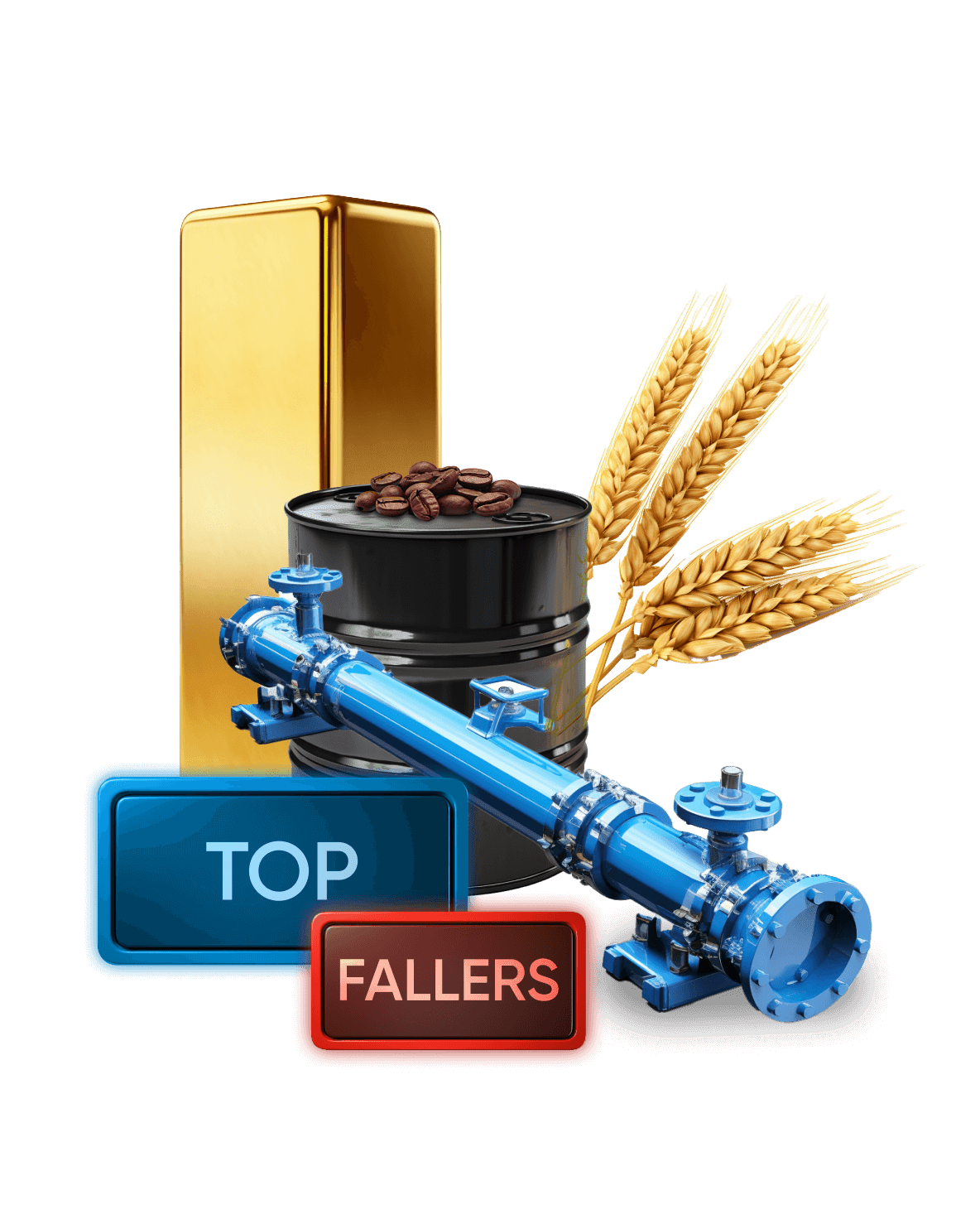HomeMarketsCommoditiesCommodity fallers
Find out which key commodity markets fell in value and what low commodity prices could mean for your trading strategy.

Commodities refer to raw materials or agricultural products that are bought and sold either physically or through derivatives like CFDs. Frequently traded metal commodities include gold, copper and silver, while common energies traded are natural gas and crude oil. Whatever the category, commodity prices can be dictated by supply and demand factors including industrial appetite, geopolitical events, and supply chain disruption, so tracking such drivers is important for those trading these markets.
Commodities can be classified across the categories of food, metals and energy. Key agricultural commodities include wheat, corn, coffee and sugar, while important metals traded on the global stage include gold, silver and copper. Meanwhile, energies like natural gas, crude oil and heating oil are widely traded through derivatives due to their liquidity, potential volatility and possible price correlation to selected other markets.
You can invest in commodities by buying and holding physical assets such as gold with the hope that it rises in value and you profit. This can be done through traditional means such as a stockbroker, or by using an online platform to buy and sell holdings. Alternatively, you can trade commodity markets by taking a position on a derivative such as a CFD, where you can make leveraged trades on the underlying price of the asset either rising or falling. The latter means you don’t own the asset outright, and you can trade on margin, meaning you have exposure to a large position with only a small outlay. Leveraged trading amplifies both profits and losses, and therefore is risky.
The three main global commodities exchanges include the CME Group, offering trading across commodities such as corn, soybeans and wheat, and energy assets such as crude oil and natural gas. The Intercontinental Exchange is a global operator of exchanges and clearinghouses and the London Metal Exchange is known for a range of base metals including aluminium, copper, lead and nickel. All of these institutions play a key role in facilitating the trading of physical commodities and derivative contracts, and allowing for hedging and speculation across a huge range of commodity markets.